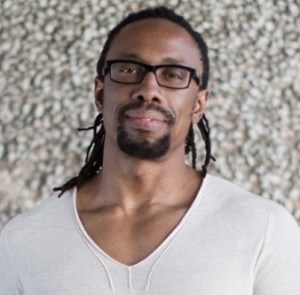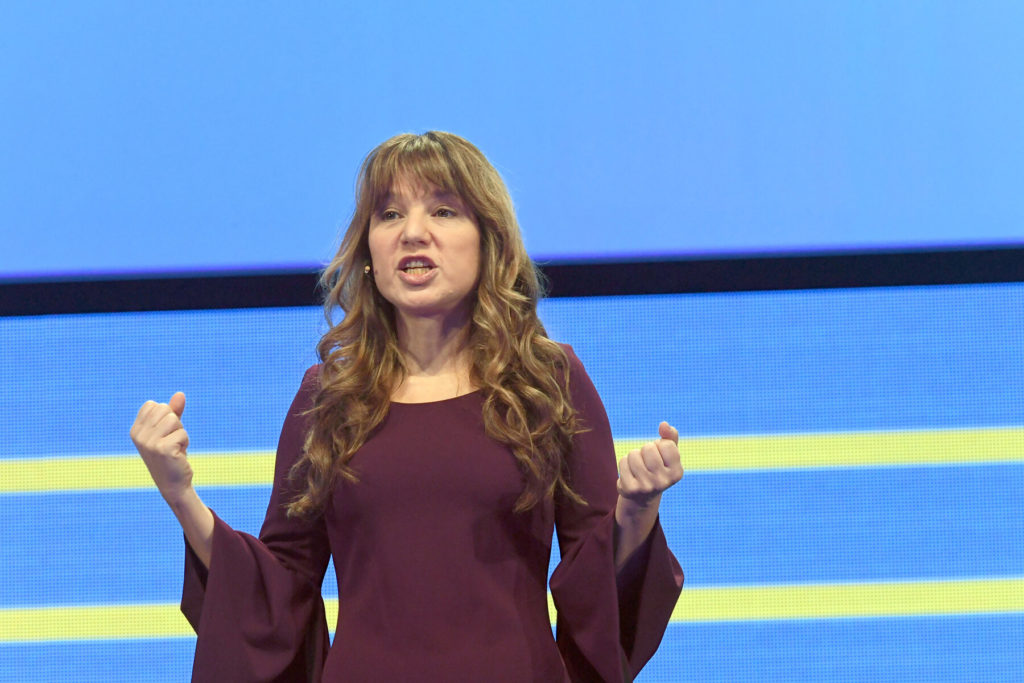Digital Privacy and Surveillance
Scholars & Thought Leaders
Allissa V. Richardson
Allissa V. Richardson is assistant professor of journalism at USC Annenberg. She researches how African Americans use mobile and social media to produce innovative forms of journalism — especially in times of crisis.

Anita Allen
Anita L. Allen is the Henry R. Silverman Professor of Law and Professor of Philosophy. A graduate of Harvard Law School with a PhD from the University of Michigan in Philosophy, Allen is internationally renowned as an expert on philosophical dimensions of privacy and data protection law, ethics, bioethics, legal philosophy, women’s rights, and diversity in higher education.

Latanya Sweeney
Professor Sweeney creates and uses technology to assess and solve societal, political and governance problems, and teaches others how to do the same. One focus area is data privacy, and she is the Director of the Data Privacy Lab in IQSS at Harvard.

Shoshana Zuboff
Shoshana Zuboff is the Charles Edward Wilson Professor of Business Administration at the Harvard Business School (retired), where she joined the faculty in 1981.
Professor Zuboff has published dozens of articles, essays, book reviews, and cases on the subject of information technology in the workplace, as well as on the history and future of work and management.
Surveillance capitalism (2019)
Shoshana Zuboff on surveillance capitalism | VPRO Documentary

Apryl A. Williams
Apryl A. Williams is an Assistant Professor of Communication & Media and an affiliate with the Digital Studies Institute at the University of Michigan. Williams is also a Faculty Associate at the Berkman Klein Center for Internet & Society at Harvard University and an affiliated researcher at NYU’s Center for Critical Race & Digital Studies. As a multidisciplinary scholar, Williams studies the experience of race and racism online. Her work positions the Internet as an inherently racialized space with its own processes, norms, and rituals of racial meaning-making. Williams’ critical race perspective on the Karen and BBQ Becky memes has been widely cited in popular press including but not limited to Time Magazine, On the Media, Slate, and Detroit NPR.

Alice E. Marwick
Alice E. Marwick is an Assistant Professor in the Department of Communication and Faculty Affiliate at the Center for Media Law and Policy at the University of North Carolina at Chapel Hill, where she researches the social, political, and cultural implications of popular social media technologies. Her current book project examines how the networked nature of online privacy disproportionately impacts marginalized individuals in terms of gender, race, and socio-economic status. Dr. Marwick is a qualitative communications scholar who uses ethnographic and critical methods to analyze the sociocultural impact of popular digital technologies. Her guiding research question asks how digital media alters the nature of audiences and the individuals and communities that compose them. On social media sites, audiences are networked, or connected to each other, engendering new social dynamics and amplifying or diminishing others. She is interested in how people contend with such changes in new technologies, how social media shapes individual lives and social interactions, and how power plays into these shifts.

Chris Gilliard
Dr. Chris Gilliard is a writer, speaker and professor of English at Macomb Community College. His scholarship concentrates on privacy, institutional tech policy, digital redlining, and the re-inventions of discriminatory practices through data mining and algorithmic decision-making, especially as these apply to college students.
- Media and the End of the World Podcast: 011 Surveillance Capitalism and Digital Redlining (Links to an external site.) (2018)
- Facebook Cannot Separate Itself From the Hate It Spreads (Links to an external site.) (2020)
- Facial Recognition Technology Isn’t Good Just Because It’s Used to Arrest Neo-Nazis (Links to an external site.) (2021)
- Real corporate accountability for surveillance capitalism with Shoshana Zuboff and Chris Gilliard (Links to an external site.) (2020)
- Digital Redlining, Access, and Privacy. (Links to an external site.) (2016)

Zeynep Tufekci
Zeynep Tufekci is an Associate Professor at the UNC School of Information and Library Science (SILS), a principal researcher at Carolina’s Center for Information, Technology, and Public Life (CITAP)(link is external), and a faculty associate at the Harvard Berkman Klein Center for Internet and Society(link is external). Dr. Tufekci’s research interests revolve around the intersection of technology and society. Her academic work focuses on social movements and civics, privacy and surveillance, and social interaction. She has become a go-to source for national and international media outlets looking for insights on the impact of social media and the growing influence of machine algorithms.

Jillian C. York

Simone A. Browne

Emma Briant
Dr Briant is one of the key researchers who uncovered the Cambridge Analytica scandal in 2018, with two books and two major documentary films, she is an internationally recognized expert on information warfare and propaganda. she has an extensive background as a professor in information operations, propaganda and human rights. Dr Briant analyzed the coordination and increasing impacts of the digitalization of defense propagandaPropaganda and Counter-Terrorism: Strategies for Global Change (Manchester University Press, 2015). She spent 13 years researching SCL Group and Cambridge Analytica.

Film & Video
Theorizing the Web Presents: Surveillance of Black Lives
In this first installment of Theorizing the Web Presents, a new series highlighting critical perspectives on timely issues at the intersection of tech and media, Museum of the Moving Image welcomes scholar and journalism instructor Allissa Richardson and scholar and AI policy advisor Mutale Nkonde, who will speak about the impact of surveillance during the movement for the liberation of Black Lives and the COVID-19 pandemic.
Indonesians React to Government WhatsApp Spying
Could you imagine what it’d be like to have your government spy on your personal group chats? That’s apparently what’s going on in Indonesia, where the Indonesian government is monitoring private group chats on WhatsApp, the most widely used messaging app in Indonesia. The government says that the cyber patrol is necessary because misinformation or fake news can “disrupt national security”, while some legal experts argue that this could amount to mass-surveillance attempts and violation of privacy. How do ordinary people of Indonesia feel about this issue? We hit the streets of Jakarta to find out.
Source: Asian Boss
How Cops Are Using Algorithms to Predict Crimes | WIRED (2018)
The LAPD is one of a growing number of police departments using algorithms to try to predict crimes before they happen. Proponents of these tools say they provide cops with added tools to keep their cities safe — but critics argue it’s just another form of profiling.
Surveillance on and off the road, Ted Talk (2017)
In the media, truck drivers are generally portrayed as nomads working for themselves on the open road. Karen Levy has us take a closer look at a seemingly innocuous technology — a digital tracking system that allows the government and employers to keep a close eye on their drivers. She draws a shocking parallel to the tech in our lives and has us question the implications of having things that keep tabs on us.
The Feeling of Being Watched
*Trailer, Full Episode Available on Amazon* Journalist turned filmmaker Assia Bendaoui sets out to investigate long-brewing rumors that the FBI was monitoring her quiet, predominantly Arab-American neighborhood. When she’s investigating, she exposes a surveillance program on a scale no one could have imagined.
Oxford Martin School: Book presentation Privacy is Power by Carissa Veliz
Have you ever been denied insurance, a loan, or a job? Have you had your credit card number stolen? Do you have to wait too long when you call customer service? You might have the data economy to thank for all that and. Join the author of Privacy is Power: Why and How You Should Take Back Control of Your Data, Carissa Véliz and Professor Rasmus Nielsen, Lead Researcher on the Oxford Martin Programme on Misinformation, Science and Media, as they discuss the need to understand the power of data better, how we can start protecting our privacy and how we need regulation. It is time to pull the plug on the surveillance economy.
Books & Articles
Hacker, hoaxer, whistleblower, spy: the many faces of anonymous (2014)
Here is the ultimate book on the worldwide movement of hackers, pranksters, and activists that operates under the non-name Anonymous, by the writer the Huffington Post says “knows all of Anonymous’ deepest, darkest secrets.”
Surveillant #EdTech Harms Nursing Students, the Profession and the public (2020)
Surveillance & Education
By: Rachel Walker
Increasingly popular surveillant education technologies like remote test proctoring services harm nursing students, the profession of nursing, and the public. As such, these technologies are incongruent with the values and ideas represented by the disciplinary guiding documents including the ANA Code of Ethics and the nursing values implicit therein.
How the U.S, Military buys Data From Ordinary Apps (2020)
A Muslim prayer app with over 98 million downloads is one of the apps connected to a wide-ranging supply chain that sends ordinary people’s personal data to brokers, contractors, and the military.
By Joseph Cox
Source: Vice
Amazon’s Face Recognition Falsely Matched 28 Members of Congress With Mugshots (2018)
Amazon’s face surveillance technology is the target of growing opposition nationwide, and today, there are 28 more causes for concern. In a test the ACLU recently conducted of the facial recognition tool, called “Rekognition,” the software incorrectly matched 28 members of Congress, identifying them as other people who have been arrested for a crime.
By Jacob Snow
Source: ACLU

Amazon’s Home Security Company Is Turning Everyone Into Cops (2019)
Neighbors, a social media crime-reporting app owned by Amazon, creates a digital ecosystem in which you are encouraged to assume the worst about your neighbors—and people of color are once again being harmed.
By Caroline Haskins
Source: Vice

ICE Records Confirm That Immigration Enforcement Agencies Are Using Invasive Cell Phone Surveillance Devices (2020)
Over a thousand pages of records begin to explain how ICE and CBP are using cell-site simulators. We’re suing to find out more.
By Alexia Ramirez
Source: ACLU

ICE Used Facial Recognition to Mine State Driver’s License Database (2019)
In at least three states that offer driver’s licenses to undocumented immigrants, ICE officials have requested to comb through state repositories of license photos, according to newly released documents. At least two of those states, Utah and Vermont, complied, searching their photos for matches, those records show. The documents, obtained through public records requests by Georgetown Law’s Center on Privacy and Technology and first reported on by The Washington Post, mark the first known instance of ICE using facial recognition technology to scan state driver’s license databases, including photos of legal residents and citizens.
By Catie Edmonson
Source: NYT

ICE Used ‘Stingray’ cell phone snooping tech hundreds of times since 2017 (2020)
U.S. immigration authorities have used a secretive cell phone snooping technology hundreds of times across the U.S. in the past three years.
By Zack Whittaker.
Source: Tech Crunch.



